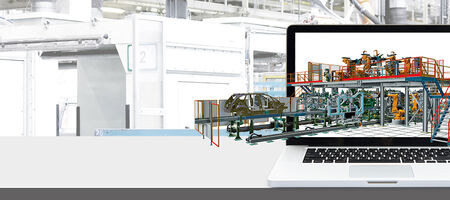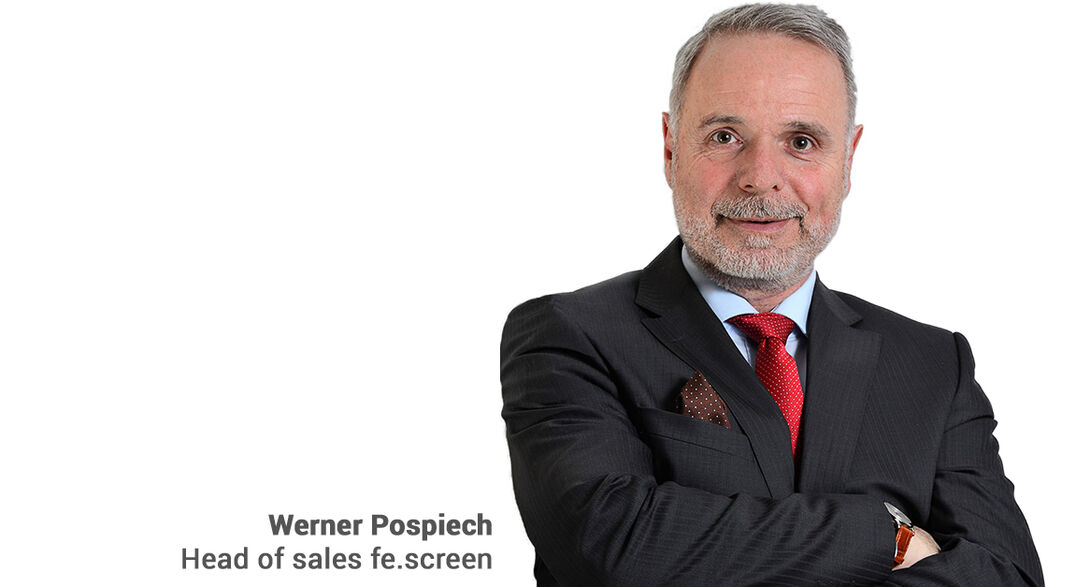Changing the engineering process through virtual commissioning
In the usual engineering process, a machine or plant is first planned and designed, before - building on this - the design of the circuit diagrams and plant electrics follows with subsequent software development. In the next step, the machine is assembled, electrically wired and commissioned. The developed PLC software is first tested in manual operation on the real system to ensure the defined behaviour for the subsequent automatic operation. In this late production phase, errors in the PLC programm are eliminated, which can lead to considerable delays, as the adaptation effort is significantly more costly than when errors are detected in an earlier project phase. The rule of ten for error costs states that the effort and associated costs for eliminating errors increase by a factor of 10 from stage to stage of the process. In other words, the earlier an error is discovered, the cheaper it is to eliminate it. This is where virtual commissioning provides decisive support in order to detect errors as early as possible.
With the use of a software tool for the creation of a digital twin, the workflow in engineering will change from a sequential workflow to parallel processing. The advantages are obvious: shorter throughput times, process validation in an early phase of the design and commissioning that shines with high time and cost savings based on software tested offline with the digital twin.

Creation of the digital twin with fe.screen-sim
fe.screen-sim enables concrete ideas and concepts to be tested on an idealised model in an early planning phase without project-specific data and to be checked for feasibility with regard to later implementation. For the creation of a digital twin, many data sources can be found in the grown tool landscapes of the companies, which can be used for the automated creation.
For a more detailed consideration of the automation possibilities in relation to the creation of the model, a prior analysis of the data as well as the point in time when they are available in the process is advantageous. An optimal prerequisite for the use of data for automatic model creation is an open interface that enables the merging of the most diverse data sources of the toolchain and their use for the digital twin. In fe.screen-sim, for example, the programming interface can be used to supply the simulation with information from outside.
The requirement profile of the people responsible for creating the digital twin is most comparable to "virtual mechanics", which means that, among other things, there should be an affinity for both mechanical design - i.e. CAD - and automation technology.
Benefits of using a virtual commissioning software
For companies, the introduction of software for virtual commissioning and the change in the engineering process brings the following benefits, among others:
- Intensification and optimisation of cooperation between mechanics, electrical planning or design and programming.
- Minimisation and detection of errors (e.g. in the plant layout) in an early engineering phase and the associated time and cost savings.
- Possibility of carrying out initial tests - e.g. of the PLC software - on an idealised model, even without 3D data.
- Reduction of required resources for the real commissioning by safeguarding the control software and mechanics.
Support and supervision of the introduction of the simulation solution fe.screen-sim
F.EE's simulation specialists are available to customers with their know-how in every project phase. Simply request a checklist for your system comparison at softwarevertrieb@fee.de.
Your personal contact person – for more clearness
You are a project or department manager and are faced with the question of how to set up a digital twin for your project? We would be happy to talk to you personally about your requirements, the time frame, the possible project approach and give you an initial cost estimate.


